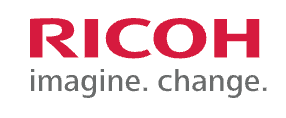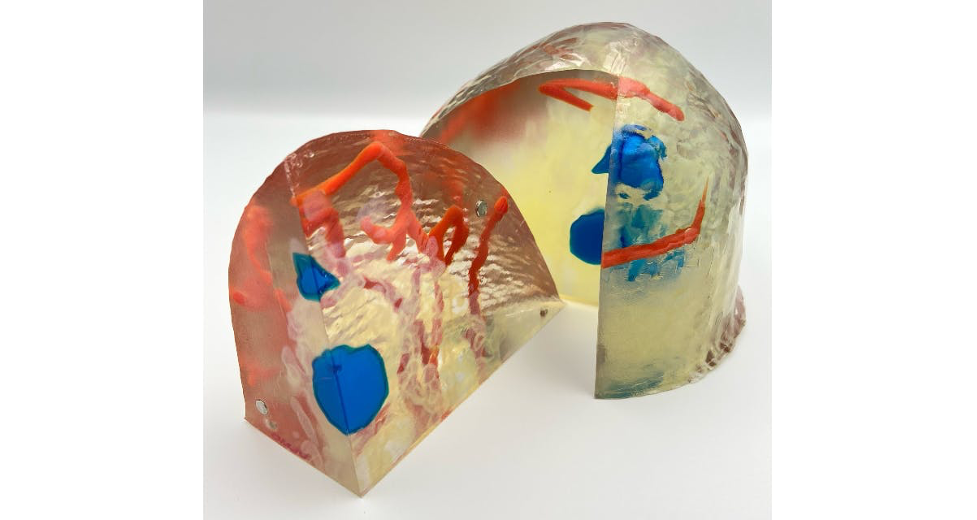ABOUT THE CUSTOMER
Southern Mutual Help Association (SMHA), New Iberia, Louisiana hasn’t encountered an insurmountable challenge yet. Quite the opposite, it has taken on some of the biggest social and economic issues of the last 50 years—poverty, racism, sexism and classism— and developed sustainable solutions few others, if any, ever considered possible. Let alone in rural Louisiana, where poverty, lack of education and access to quality healthcare—and more recently, a deluge of hurricanes—threatened the well being of many of its residents.
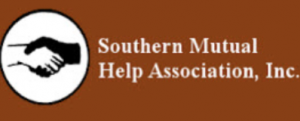 But against-all-odds causes are what fuels SMHA. On a mission since 1969 to build strong, healthy and prosperous communities in rural Louisiana, SMHA focuses its advocacy and activism on helping low-wealth families, women, people of color, and families and communities whose livelihoods depend on the area’s lands and waters.
But against-all-odds causes are what fuels SMHA. On a mission since 1969 to build strong, healthy and prosperous communities in rural Louisiana, SMHA focuses its advocacy and activism on helping low-wealth families, women, people of color, and families and communities whose livelihoods depend on the area’s lands and waters.
Through the years, SMHA has received more than 60 awards for its tireless work and been featured on all major U.S. broadcast news networks and newspapers. SMHA Co-Founder, President and CEO Lorna Bourg is a MacArthur Fellow who serves on the U.S. Commission on Civil Rights Louisiana Advisory Committee.
For nearly ve decades, SMHA has focused on helping communities, primarily in rural Louisiana, with some regional, national and international service work mixed in. It has waged court battles, in uenced public policy, taken on lawmakers, collaborated with banks, partnered with developers and much more—all in the name of establishing a comprehensive approach to creating healthy, prosperous communities.

In the late 1960s/early 1970s, SMHA established the rst medical and dental clinic for sugarcane farm workers that served 10,000 clients its rst year and became a model for 150 clinics across Louisiana. The association brought adult education to many workers on still-operational plantations who couldn’t read or write. SMHA even exposed and eradicated through the courts a system that had left sugarcane plantation workers perpetually in debt to plantation owners year after year.
“We helped people get running water and sewage and fund home repairs,” said Lorna Bourg. “It created a new culture of appreciation and self help.”
The association also started the rst community development nancial institution in rural Louisiana, Southern Mutual Financial Services. Unable to tap into a risk-averse national secondary market to secure the loans closed by Southern Mutual Financial Services, SMHA worked with its local community bank partner, IBERIABANK, to create the rst local secondary market of its kind.
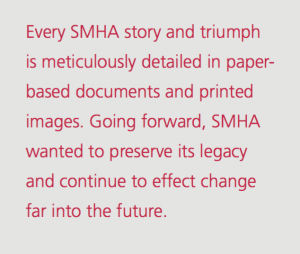 When Hurricane Katrina, quickly followed by Hurricane Rita, devastated the homes and livelihoods of residents of the low-lying Louisiana coastal communities in 2005, SMHA was quick on the scene—in many cases the rst responders in isolated areas not yet visited by government or national not-for-pro t organizations. In addition to raising and deploying more than $10 million— none of it from government sources—and recruiting and coordinating more than 6,000 volunteers, SMHA convinced its local bank partner to increase its secondary market commitment to $100 million to help meet capital needs to rebuild.
When Hurricane Katrina, quickly followed by Hurricane Rita, devastated the homes and livelihoods of residents of the low-lying Louisiana coastal communities in 2005, SMHA was quick on the scene—in many cases the rst responders in isolated areas not yet visited by government or national not-for-pro t organizations. In addition to raising and deploying more than $10 million— none of it from government sources—and recruiting and coordinating more than 6,000 volunteers, SMHA convinced its local bank partner to increase its secondary market commitment to $100 million to help meet capital needs to rebuild.
“This is what happens when good people get together,” said Lorna Bourg. “We nd gaps in economics, social knowledge and institutions—and people of courage who will understand how you create prosperity by getting to know each other and making things happen.”
That’s just a snapshot of the many accomplishments and historical signi cance of SMHA. Going forward, SMHA wanted to preserve its legacy and continue to effect change far into the future. However, Lorna Bourg—the sole remaining co-founder of SMHA—worried that every story and triumph detailed in paper-based documents and printed images could one day perish in a hurricane or other catastrophic event. She knew it was time to take action and decided Ricoh Digital Imaging Services was the right partner to bring the SMHA story into the digital age.
CHALLENGE
SMHA has maintained its archived, paper-based documents in more than 350 boxes in offsite storage for years. These boxes contained nearly 50 years of historical documents—letters, case studies, lawsuits, Congressional hearing transcripts, and the like. With even the threat of a tropical storm or hurricane, SMHA team members would load all the boxes full of documents in rented vans and head north to make sure they remained intact. But these preventative measures had grown tiresome and certainly weren’t failsafe.
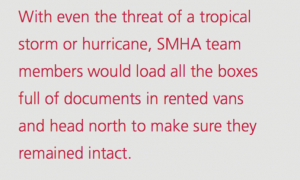 “Our biggest concern was how to get this story told. The story of two women and one man who started
“Our biggest concern was how to get this story told. The story of two women and one man who started
SMHA to deal with the systemic causes of poverty and create healthy, prosperous rural communities,” said Lorna Bourg. “We knew that, unless we are bold enough to tell this story, it would disappear.”
Lorna Bourg had her sights set on providing SMHA’s collection of documents to an institute dedicated to educating undergraduate women for leadership in the 21st century. However, Lorna Bourg didn’t want to hand over paper-based document originals that could be lost or destroyed. She wanted to provide SMHA’s history in digital form.
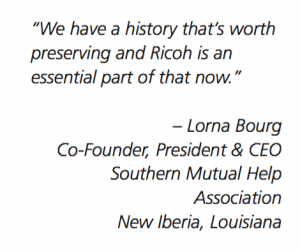 With even the threat of a tropical storm or hurricane, SMHA team members would load all the boxes full of documents in rented vans and head north to make sure they remained intact.
With even the threat of a tropical storm or hurricane, SMHA team members would load all the boxes full of documents in rented vans and head north to make sure they remained intact.
“As I leave this for the next generation of leaders, I wanted to have everything cleaned up and digitized,” Lorna Bourg said. “There are a lot of well-recognized people in our documents—judges, politicians, authors and many others who have helped us through the years. Together, we’ve accomplished some landmark stuff in this country and the Deep South. That needs to be preserved.”
SMHA’s biggest concern with making the move from paper to digital was ensuring the security of the documents and having a way to index and easily retrieve the electronic les. Cost was also a concern, but Lorna Bourg enlisted her typical fortitude to raise the money to hire a consultant that could provide guidance on the project and a partner to handle all the document digitization.
SOLUTION
Lorna Bourg initially considered purchasing scanners and digitizing all of the documents in-house. But, ultimately, she decided SMHA needed a process and an experienced partner that would handle and scan their documents with meticulous care.
Lorna Bourg sought the help of longtime colleague and friend, Jacklyn Ducote, a public affairs and research consultant with a master’s degree in Library Science, and a 2009 inductee into the Louisiana State University Journalism School Hall of Fame. Jacklyn Ducote began with an internet search for a digitizing expert and responded to a questionnaire from Ricoh. This later led to a meeting between a Ricoh account rep and Jacklyn Ducote. Liking what she heard about Ricoh Digital Imaging Services, Jacklyn Ducote then initiated a meeting with Lorna Bourg at SMHA’s of ce in New Iberia.
“We met with the Ricoh people and they really listened. They understood how to talk to women leaders,” Lorna Bourg said.
 SMHA quickly signed on with Ricoh Digital Imaging Services and the scanning began. Ricoh agreed to scan
SMHA quickly signed on with Ricoh Digital Imaging Services and the scanning began. Ricoh agreed to scan
the documents in batches, taking 40 boxes at a time to its Houston, Texas, scanning facility and returning the boxes to
New Iberia to pick up the next batch. A DVD accompanies each delivery of scanned documents. As batch scans are completed, Ricoh is building an external hard drive that will eventually replace all the individual DVDs.
“We were concerned about Ricoh taking our documents to their New Orleans facility, due to the potential for hurricanes. They were very accommodating and willing to perform the work in Houston for us,” said Lorna Bourg.
With more than 25 years of document processing center expertise, Ricoh Digital Imaging Services has approximately 40 established imaging centers across the U.S. The centers operate 24/7, providing both back le conversion and day-forward scanning services. When hard-copy documents arrive at a Ricoh Digital Imaging Services center, they are put through a variety of sequential processes: document preparation, scanning and quality control, reassembly, indexing and delivery.
To help ensure the security of SMHA’s documents, chain of custody forms were attached to all the deliveries. SMHA was also concerned about the security of Cloud-based storage, so Ricoh recommended an external hard drive and back-up on multiple Ricoh servers.
After scanning each document, Ricoh Digital Imaging Services created a text searchable layer (OCR) to facilitate an easy word search and document retrieval. In addition, SMHA provided searchable spreadsheets listing and describing each le in each box in detail, and Ricoh added hyperlinks to the digitized les to simplify document location.
“As we go along, we might nd that we have so many les, our indexing system might be too slow. But Ricoh always works with us and shares information to help us improve,” said Jacklyn Ducote.
RESULTS
The rst phase of SMHA’s engagement with Ricoh Digital Imaging Services is nearly complete, with 90 percent of the documents now digitized. Ricoh and SMHA will next sit down to discuss phase two—the digital conversion of hundreds of newspaper clippings derived from nearly ve decades of high-pro le news coverage.
Impressive Quality Control
SMHA has found working with Ricoh to be an outstanding experience. Thanks to its attention to detail and tight quality control processes, Ricoh Digital Imaging Services was able to scan odd-sized documents—including the occasional idea written by Lorna Bourg on a napkin—while agging and correcting errors before they made it into the nal digital records.
Preserving SMHA’s Legacy
As Lorna Bourg’s energy and drive continue to propel the organization forward, she takes comfort knowing the legacy of SMHA will be preserved and accessible for generations to come. What began as a $250 endeavor to start a not-for-pro t organization to rid rural areas of poverty and create prosperity is now a much lauded, $14 million/year venture that serves as a model to others who will follow.
Lorna Bourg refers to the effort to digitize all of SMHA’s historical documents as “Founders to the Future.” For those that have the dream and drive today—but maybe not the funding—she wants them to know exactly how it can be done. Exactly how SMHA did it.
 “We have a history that’s worth preserving and Ricoh is now an essential part of that,” said Lorna Bourg.
“We have a history that’s worth preserving and Ricoh is now an essential part of that,” said Lorna Bourg.
Soon, Lorna Bourg will begin working with Fannie Godwin of Jacklyn Ducote & Associates to build collections and write stories from the digitized les to inform future not- for-pro t community development organizations. Godwin brings extensive knowledge of SMHA’s history and helped organize many of SMHA’s les for scanning.
